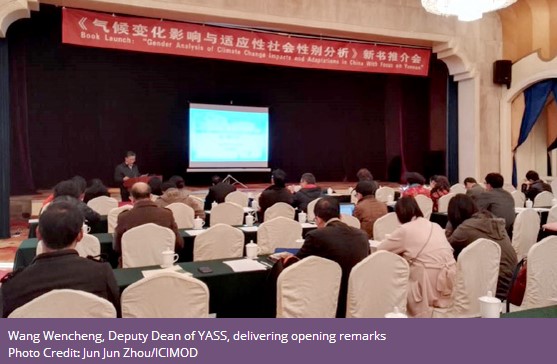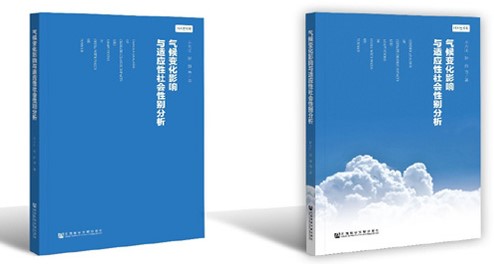Last month, ICIMOD and the Yunnan Academy of Social Sciences (YASS) hosted a book launch for a co-produced volume entitled, Gender Analysis of Climate Change Impacts and Adaptation in China with Focus on Yunnan. More than 30 representatives from provincial government offices, universities, and institutions were on hand to receive long-awaited text.

Gender Analysis, written in Chinese, synthesizes major results from six years of research in China, carried out by ICIMOD and its partners in the Himalayan Climate Change Adaptation Programme (HICAP).
Under HICAP, a substantial part of the research in China focuses on gender issues in climate change adaptation, a topic on which there has previously been little research in the Chinese context. The book presents a comprehensive framework for analyzing climate change impacts and policies from a gender perspective in the context of a record-breaking and persistent meteorological drought with widespread impacts on millions of people, livestock, and crops in Yunnan. A rich range of case studies highlight the actual and potential effects of climate change, particularly water stress on women's vulnerabilities.

This book analyses the impacts of climate change on rural livelihoods through a gender lens. The conceptual framework for the book focuses on four elements of the linkage between gender and climate change in the context of rural livelihoods: gender impact of climate-induced resource shortage like water, and ecosystem services; gender impact of climate-induced migration; gender dimension of natural disasters and gender, poverty and climate change. The research is based on case studies in Yunnan looking at gendered vulnerability and adaptation to climate change and providing evidence and knowledge related to gender and climate change for policy makers. Three relevant analytical frameworks have been applied including Caroline Moser's gender role analysis framework, the framework for gender-aware vulnerability analysis and gender specific adaptation approach. Gender vulnerability in accessing livelihood related resources such as land, water, credit, agricultural technology, extension and training services have been examined, particular women's vulnerability. The different adaptation needs and skills of women and men have been discussed with a special focus on women.
Each chapter has a title and abstract in English for non-Chinese readers. Each chapter follows a consistent structure, namely context introduction, research methodology, research findings and policy recommendation.
Details at: http://www.icimod.org/

